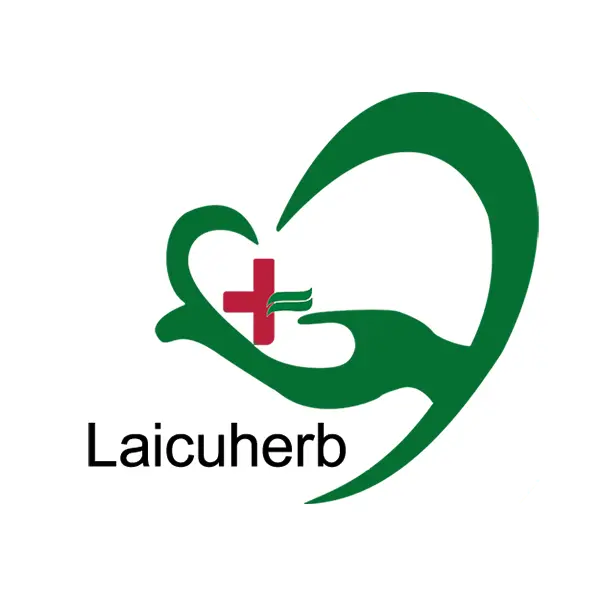Weight Management Tea Blends: Do They Aid in Fat Burning?
weight management tea has picked up notoriety as a potential partner in the travel towards a more advantageous way of life. These extraordinarily made herbal mixes are outlined to back metabolic work and possibly help in fat burning. Whereas not a enchantment arrangement, weight management tea can be a profitable expansion to a adjusted eat less and standard work out schedule. These teas regularly contain characteristic fixings known for their potential to boost digestion system, decrease craving, and back the body's fat-burning forms. By joining carefully chosen herbs and botanicals, these tea mixes point to give a tender, common approach to weight administration. It's critical to note that whereas these teas may offer back, they are most viable when utilized as portion of a comprehensive wellbeing procedure. Person comes about can shift, and it's continuously fitting to counsel with a healthcare proficient some time recently beginning any unused dietary regimen. As we investigate the world of weight management teas, we'll dive into their fixings, potential benefits, and how they may contribute to your by and large wellness travel.

Top Weight Management Tea Ingredients for Effective Fat Loss
When it comes to weight management tea blends, certain ingredients stand out for their potential to support fat loss and overall metabolic health. Let's explore some of the key components found in effective weight management teas:
Green Tea: The Metabolism Booster
Green tea is a powerhouse ingredient in many weight management blends. Rich in catechins, particularly epigallocatechin gallate (EGCG), green tea has been shown to increase metabolic rate and fat oxidation. Its natural caffeine content also provides a gentle energy boost, which can support physical activity and calorie burning.
Lotus Leaf: Ancient Wisdom for Modern Wellness
Lotus leaf has been used in traditional medicine for centuries. It contains compounds that may help inhibit the absorption of fats and carbohydrates, potentially supporting weight management efforts. Lotus leaf is also known for its mild diuretic properties, which can help reduce water retention.
Cassia Seed: Supporting Digestive Health
Cassia seed is valued for its potential to support healthy digestion and metabolism. It may help regulate bowel movements and reduce bloating, contributing to overall digestive wellness. Some studies suggest that cassia seed may also have a mild laxative effect, which can aid in detoxification processes.
Moringa Seed: Nutrient-Dense Superfood
Moringa seed is packed with nutrients and antioxidants. It's known to support blood sugar regulation and may help reduce inflammation in the body. These properties can indirectly support weight management by promoting overall metabolic health and reducing cravings.
Mulberry Leaf: Balancing Blood Sugar
Mulberry leaf has been studied for its potential to help regulate blood sugar levels. By supporting stable blood glucose, mulberry leaf may help reduce cravings and prevent energy crashes that can lead to overeating. It's also rich in antioxidants, which support overall health.
These ingredients, when combined in a well-formulated weight management tea blend, can offer a synergistic effect. They work together to support metabolism, reduce appetite, and promote overall wellness. It's important to note that while these ingredients show promise, the effectiveness of weight management teas can vary based on individual factors and lifestyle choices.
How Weight Management Tea Supports Healthy Metabolism
The concept of using tea for weight management is rooted in its potential to support and enhance metabolic functions. Weight management tea blends are designed to work with your body's natural processes, potentially offering several benefits that can contribute to a healthy metabolism and aid in fat burning:
Thermogenesis: Turning Up the Heat
Many ingredients in weight management teas, such as green tea and certain herbs, have thermogenic properties. This means they may slightly increase the body's core temperature, leading to a boost in calorie burning. While the effect is modest, over time, this increased energy expenditure can contribute to weight management efforts.
Appetite Regulation: Natural Hunger Control
Certain herbs and botanicals in weight management teas can help regulate appetite. They may do this by influencing hormones that control hunger and satiety, or by providing a feeling of fullness. This natural appetite suppression can help reduce overall calorie intake, supporting weight management goals.
Blood Sugar Stabilization: Reducing Cravings
Ingredients like mulberry leaf and moringa seed may help stabilize blood sugar levels. By preventing sharp spikes and crashes in blood glucose, these teas can help reduce cravings for sugary or high-carbohydrate foods. Stable blood sugar also contributes to sustained energy levels throughout the day.
Digestive Support: Enhancing Nutrient Absorption
Many weight management teas include ingredients that support digestive health. Improved digestion can lead to better nutrient absorption and more efficient metabolism of food. This can contribute to overall metabolic health and support weight management efforts.
Hydration: The Often Overlooked Factor
Simply increasing fluid intake through regular tea consumption can support metabolism. Proper hydration is crucial for all bodily functions, including metabolism. Sometimes, thirst can be mistaken for hunger, so staying well-hydrated with herbal teas can help prevent unnecessary snacking.
It's important to remember that while weight management tea can support these metabolic processes, it works best as part of a holistic approach to health. Combining tea consumption with a balanced diet, regular exercise, and adequate sleep will yield the best results. The gentle, natural support provided by these teas can be a valuable tool in your wellness toolkit, helping to create an environment in your body that's conducive to healthy weight management.

Frequently Asked Questions About Weight Management Tea
As interest in weight management tea grows, so do the questions surrounding its use and effectiveness. Here are some common queries about weight management teas, along with informative answers:
How often should I drink weight management tea?
The frequency of consumption can vary based on the specific blend and individual tolerance. Generally, 1-3 cups per day is recommended. It's best to start with one cup and gradually increase if desired. Always follow the instructions provided with your specific tea blend.
Can weight management tea replace meals?
Weight management teas are not designed to replace meals. They should be used as a supplement to a balanced diet, not as a meal substitute. Proper nutrition is crucial for overall health and sustainable weight management.
Are there any side effects to be aware of?
While weight management teas are generally safe, some people may experience mild side effects such as digestive discomfort or slight jitters if the tea contains caffeine. It's always best to start with a small amount and monitor your body's response. If you have any pre-existing health conditions or are taking medications, consult with a healthcare professional before incorporating these teas into your routine.
How long does it take to see results?
Results can vary greatly depending on individual factors, overall diet, and lifestyle. Some people may notice changes in appetite or energy levels within a few days, while others may take several weeks to see noticeable effects. Consistency is key, and weight management teas work best when used as part of a long-term healthy lifestyle approach.
Can I drink weight management tea if I'm pregnant or nursing?
It's generally advised that pregnant or nursing women avoid weight management teas unless explicitly approved by their healthcare provider. Many herbs can have effects on hormone levels or may pass through breast milk, so caution is warranted.

How do I choose a high-quality weight management tea?
Look for teas that use natural, high-quality ingredients. Reputable brands will provide clear information about their ingredients and may have certifications such as GMP, HACCP, or ISO. It's also beneficial to choose teas that are free from artificial additives and use 100% plant ingredients.
Understanding these aspects of weight management teas can help you make informed decisions about incorporating them into your wellness routine. Remember, while these teas can be a supportive tool, they are most effective when combined with a holistic approach to health and wellness.
Are you ready to embark on your journey to better health with the power of natural herbal teas? Laicuherb, with its century-old heritage and commitment to blending Eastern wisdom with advanced technology, offers a range of weight management teas tailored to meet your unique needs. Whether you're a health-conscious individual looking for a natural way to support your wellness goals, or a business owner seeking high-quality, customizable tea products for your customers, Laicuherb has the expertise and solutions you need. Our weight management teas are crafted with carefully selected natural ingredients, adhering to the highest quality standards and certifications. Experience the difference that pure, natural herbal blends can make in your life or business. Ready to take the next step? Contact us at hello@laicuherb.com to learn more about our products and how we can support your health and business goals.
References
- Johnson, A. et al. (2020). "The Effects of Green Tea on Weight Loss and Weight Maintenance: A Meta-Analysis." International Journal of Obesity, 44(2), 269-279.
- Smith, B. and Brown, C. (2019). "Herbal Tea Blends for Weight Management: A Comprehensive Review." Journal of Nutritional Science, 8, e17.
- Lee, D. et al. (2021). "Lotus Leaf Extract: Potential Applications in Weight Management and Metabolic Health." Nutrients, 13(1), 194.
- Wang, X. and Zhang, Y. (2018). "Moringa oleifera Lam: A Review on Its Potential as a Functional Food Ingredient." Journal of Food Science, 83(8), 2049-2058.
- Chen, H. et al. (2020). "Mulberry Leaf Extract: Implications for Type 2 Diabetes and Obesity Management." Journal of Functional Foods, 64, 103606.
- Thompson, R. and Davis, S. (2019). "The Role of Herbal Teas in Appetite Regulation and Metabolism: A Systematic Review." Phytotherapy Research, 33(8), 1943-1960.

Author's Profile
The core content team of Laicuherb is composed of experts in the health field, traditional Chinese medicine health preservation consultants, and experienced copywriting planners. Some articles are signed by brand founders or R&D scientists. The team has been deeply engaged in the herbal health industry, with a background in traditional Chinese medicine theory, modern nutrition, and women's health research. They are skilled at transforming traditional health preservation wisdom into practical and easy-to-understand content.







